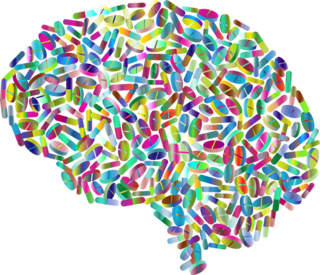Coronavirus Disease 2019
New AI Study Finds Drugs for COVID-19 Based on Phenotypes
World’s first AI tool for phenotype-based drug repurposing for COVID-19.
Posted February 3, 2021 Reviewed by Kaja Perina

Artificial intelligence (AI) machine learning is becoming an important tool in drug discovery. A new study published on Monday in Nature Machine Intelligence shows how AI deep learning can be used to screen for drugs that can be repurposed based on phenotypes, and used it to identify 15 drug candidates for COVID-19 treatment.
“To our knowledge, it is the first work of phenotype-based drug repurposing for COVID-19,” wrote Ohio State University researchers Thai-Hoang Pham and Ping Zhang, along with City University of New York researchers Yue Qiu, Jucheng Zeng and Lei Xie.
Modern drug discovery can roughly be divided into target-based or phenotype-based approaches. In target-based drug discovery, researchers select a specific molecular target based their hypothesis on the role it plays for a specific disease or disorder. The biomolecular target is the molecule such as RNA, DNA, and proteins, that is associated with modifying the disease such as its pathway, pathology, and infectiousness. Since the late 1980s, target-based drug discovery has been the most common approach.
On the other hand, in the past decade, phenotype-based drug discovery has been an emerging area in the biotechnology, pharmaceutical, and life sciences industries. Innovative technologies for cell-based phenotypic screening have empowered researchers with new ways to model cell-based diseases. These new enabling cell-based modeling technologies include CRISPR, in vitro organoids, imaging assays, and induced pluripotent stem (iPS) cells.
Phenotypes are observable traits and characteristics such as behavior, eye color, and height. Phenotypes are influenced by its genotype (a specific gene or set of genes of an organism), as well as other factors such as the environment, lifestyle, and epigenetic modifications.
“In this study, we have proposed DeepCE—a novel and robust neural network-based model for predicting chemical-induced gene expression profiles from chemical and biological objects, especially in de novo chemical setting,” wrote the researchers.
The researchers report that DeepCE performed better than baseline models in the novel chemical setting and state-of-the-art methods in the imputation setting.
DeepCE’s graph convolutional network extracts the chemical substructure features from data automatically. It learns numerical representations for chemical compounds from its graph structure. A feed-forward neural network predicts gene expression values simultaneously from hidden features. The researchers trained DeepCE to predict gene expression profiles for the over 11,000 drugs in the Drugbank database.
DeepCE identified 15 drugs with potential to repurpose as COVID-19 treatment. According to the researchers, they demonstrated DeepCE “to be effective in the challenge and urgent problem, finding treatment for COVID-19, by in silico screening all chemical compounds in Drugbank against COVID-19 patient clinical phenotypes.”
“Our model achieves state-of-the-art results of predicting gene expression profiles compared to other models not only in de novo chemical setting but also in the traditional setting,” the researchers wrote.
Innovation in science and technology has accelerated de novo drug discovery in the past three decades. These advances include the areas of genomics, computer-aided design, molecular biology, protein crystallography, robotic automation, assays, high-throughput screening, and computing power. Now with this new proof-of-concept, scientists have an artificial intelligence deep learning tool for phenotypic drug discovery to enable novel treatment of diseases and disorders in the future.
Copyright © 2021 Cami Rosso All rights reserved.


